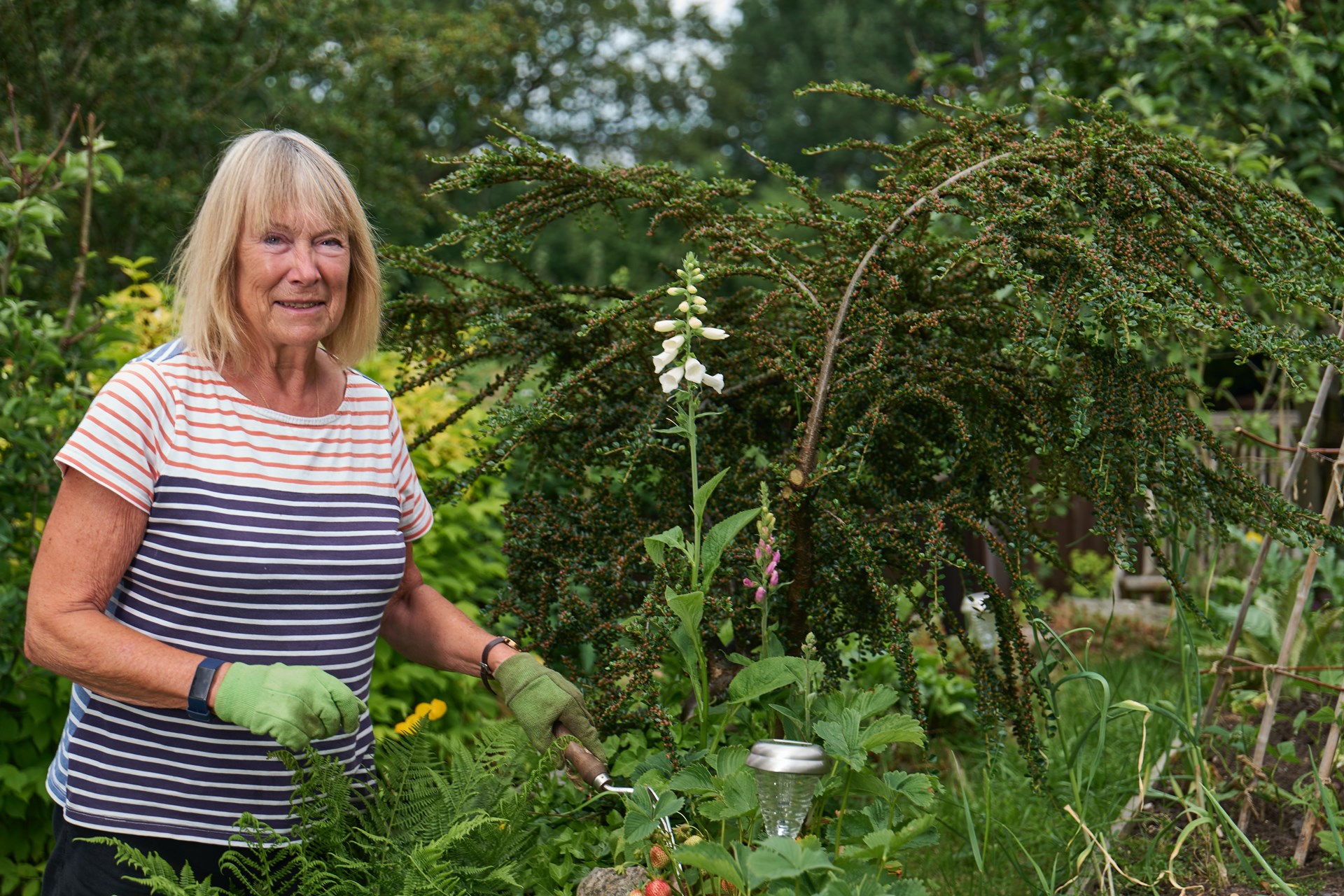Why gardening is good for your mind and body
We all know that exercise is good for us, but did you know that 30 minutes of gardening can burn the same number of calories as a game of badminton?
We all know that exercise is good for us, but did you know that 30 minutes of gardening can burn the same number of calories as a game of badminton?
The healing power of nature is something we can all benefit from, and nowhere do we feel this more than when surrounded by the flowers and the trees, the birds and the bees, and perhaps a fellow gardener or two.
Immersing ourselves in nature is fantastic for our mental, physical, and emotional wellbeing. There’s just something about the great outdoors that speaks to an innate part of us – and when we swap sitting in the sun for a spot of gardening, even more wonderful things start to happen.
We all know that exercise is good for us, but did you know that 30 minutes of gardening can burn the same number of calories as a game of badminton?
As well as benefitting our bodies, gardening has also been found to reduce symptoms of anxiety and depression, improve social functioning, lower stress levels, prevent cognitive decline, and help to maintain independence.
If that wasn’t enough, time spent in nature has been shown to:
In 2021, the RHS released research that revealed those who garden every day have wellbeing scores 6.6% higher and stress levels 4.2% lower than people who don’t garden at all. And who can disagree with the Royal Horticultural Society?
Even if you no longer have your own private garden, tending a shared space can be incredibly fulfilling – not to mention bringing you closer to others.
Whether you choose to grow your own vegetables, plant a herb garden, try your hand at a hanging basket, tend to the rose bushes, create a border in bloom, mow the lawn, put out feed for the squirrels and birds, sweep up the leaves, trim the edging, pull out the weeds, or simply sit outside and soak up the beauty of it all, doing a little in your garden really can deliver a whole host of health benefits.
But if you are keen to get out there and give your green fingers free reign, what gardening jobs should you be focusing on in July?
As one of the warmest months in the calendar year (fingers crossed!), July is the perfect time to enjoy your garden, and all the beauty it brings. Because of more heat, it’s important to keep plants watered, root out the weeds, and get ruthless with any deadheads you spy on your saunter round the flower beds.
According to the RHS, the top ten jobs that deserve your focus this month are:
This month is your last chance to sow French beans and runner beans (only if you’re in the south of England), and if you’ve not yet planted out leeks and brassicas ready for a winter supply, now’s the time to do it.
Carrots can still be sown in July (keep an eye out for those pesky carrot fly if splitting existing seedlings), but this month is best for spring cabbage, turnips, oriental veggies, chicory, fennel, and any autumn or winter salads.

As a font of all gardening knowledge, the RHS advises keen gardeners to keep an eye out for the following this month:
You might also want to check any tree ties as tree trunk girth increases and give regular liquid feeds to plants growing in containers.
Looking ahead to August, the most pressing jobs include pruning Wisteria and restricted fruits, deadheading flowering plants on a regular basis, watering containers and new plants (preferably with grey recycled water or rainwater), and collecting seeds from your favourite plants.
But if all of that sounds like too much trouble, make yourself a cuppa and simply soak up the sunshine. The garden will work its magic either way.
You can enjoy shared gardens in all of our houses. Some of our tenants are keen gardeners, while others prefer to sit and simply enjoy the outdoor space. If you thinking about making a move read more about Our Houses